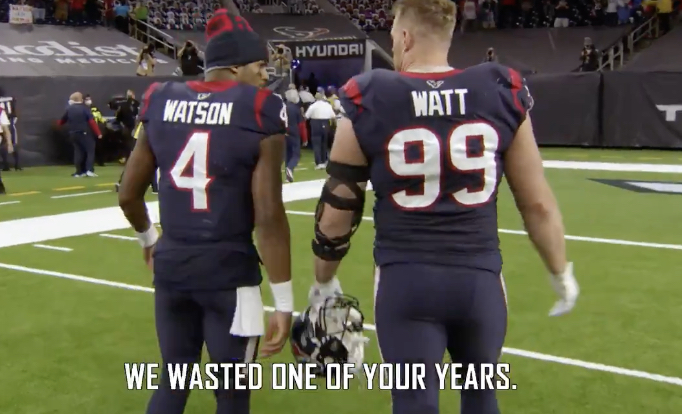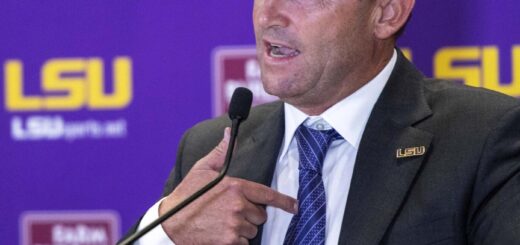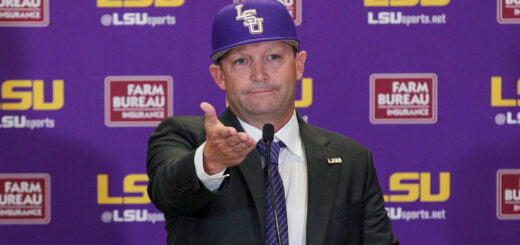Deshaun Watson, the Texans and the Saints – who has the power?

A few weeks ago I chose to watch The Crown on Netflix over the snoozefest that was Super Bowl LV and am happy to report that I have no regrets.
The Saints actually have quite a bit in common with the British royal family. The Crown depicts the reign of Queen Elizabeth II, who ascended to the throne after the death of her father, King George VI, in 1952. The Queen was not meant to rule; she only became first in the line of succession after her uncle, King Edward VIII, abdicated so he could marry a divorced woman.
As depicted in the series, Queen Elizabeth II rules during a time of great social upheaval. She must save her country’s tradition and its democracy while also not meddling in government affairs. She must be the head of state, but also be invisible.

This isn’t unlike the job of an NFL owner. Owners write the checks and have final say over everything that goes on in a team facility. But rarely do meddling owners win Super Bowls.
The Saints are fortunate to have a strong infrastructure in place as they navigate the biggest upheaval in franchise history – the expected retirement of quarterback Drew Brees.
Gayle Benson has said herself that she is more of a steward of the franchise than a hands-on participant in day-to-day football operations. Sean Payton, Mickey Loomis and Jeff Ireland have been given room to operate as they please. And while ignorant fans of other teams gripe on Twitter about how the Saints are facing salary cap hell by pushing Brees’ salary down the road again and again, the team recently re-negotiated his contract. In an instant, they saved $24 million against the cap.
Loomis and his brain trust always knew that was a possibility. There will likely be a flurry of cuts and contract restructures in the coming weeks and before you know it, the Saints will be ready to field a competitive team without the franchise’s greatest player.
Meanwhile, teams like the Houston Texans are crumbling before our very eyes. They scared away defensive end J.J. Watt, the face of the franchise and a Houston icon. Before that, star QB Deshaun Watson requested a trade.
For Saints fans, the acquisition of the 2020 passing yardage champion would be a dream come true and would instantly make the Saints Super Bowl contenders, if not favorites. But given the Texans’ reportedly astronomical asking price and the Saints’ lack of draft capital, it’s more of a pipe dream.
The Texans said that they have “zero interest” in trading Watson, setting up a standoff that could last into the 2021 regular season and beyond.
But Deshaun Watson is going to get traded. He has all the power.

We in New Orleans have learned this lesson the hard way. Twice our pro basketball franchise has been reshaped in the wake of a star player demanding a trade. First, it was Chris Paul with the then-Hornets in 2011. In 2019, just days after the Saints lost the No-Call, the Pelicans’ Anthony Davis demanded a trade.
We found out that certain athletes have the power to destroy a franchise at their whim. But while we all gripe and moan and hate the people at the center of the circus, sometimes we forget that this doesn’t happen in a vacuum.
When the Hornets lost Chris Paul and the Pelicans lost Anthony Davis, it was because the basketball operations had been mismanaged. The circumstances behind the CP3 trade remain murky. There were reports that he was influenced by Lebron James’ decision to form a super team in Miami and that he was unhappy with the trajectory of the Hornets. At the time, the team was in ownership flux and was managed by the NBA itself. But in the years since, Paul has said he doesn’t know if would have signed an extension to remain in New Orleans.
With Davis, former general manager Dell Demps failed in every attempt to make the Pelicans competitive. The way Anthony Davis went about his departure wasn’t elegant or mature, but it did force Gayle Benson to clean house and get serious about winning long-term.
It’s also important note the difference in power dynamics in the NBA versus the NFL. Rosters are much smaller in the NBA and one player can have a much greater impact than an individual on a 53-man roster.
Contracts in the NBA are guaranteed, whereas in the NFL, the vast majority of contracts are not. NFL players can be cut at any time with little or no salary cap harm done to the team. NBA players, however, must be paid, and have become empowered to be more vocal about a number of things, including where they play.
Take Washington Wizards guard Bradley Beal for instance. He currently leads the NBA with 32.8 points per game, 29% of his team’s entire per game production. Trade rumors are constantly swirling around Beal, and if a player like him were to be dealt, that loss would be like if an entire offensive line, plus a receiver or two, wanted out of town.
Or a quarterback. It’s the most important position on the team and the player that requires the most specialized skill set.
The Texans have to trade Watson, lest they are faced with a hold out. Ostensibly, Watson could afford (both financially and physically) to sit out the 2021 season until he’s traded. With Watson playing at MVP levels in 2020, the team went 4-12. How bad would they be without him?
On top of that, Watson has a no-trade clause in his contract and can dictate where he goes. So, Saints fans, say some prayers to your Buddy D candle that Watson wants to play in New Orleans (or somewhere not in the NFC), because that would strip the Texans of all their bargaining leverage.
But why does this keep happening? Every year, it seems like a new batch of stars sours on the team that drafted them. Every year, a new fan base is left holding the bag.
The answer is simple. Ownership doesn’t listen to their players. The owners might have the ability to rule their franchises with an iron fist, but it doesn’t mean that they should.
Owners like Gayle Benson are more benevolent monarch than crazed despot. Others, like Cowboys owner Jerry Jones, are heavily involved in daily football operations. But there’s a key difference between Jones and Texans owner Cal McNair: Jerry Jones played football and has worked in and around the sport his entire life. McNair is a rich kid who has no claim to the franchise other than simply being born into the McNair family.
Watson’s frustration began when All-Pro WR DeAndre Hopkins was traded to the Arizona Cardinals for an empty bag of Zapp’s Potato Chips and it boiled over when he wasn’t consulted when McNair hired a new general manager and a new head coach.
There’s also the presence of Jack Easterby, the team’s executive vice president of football operations. By all accounts, Easterby is a low-rent Machiavellian clown who has created chaos and division without any noteworthy football-related bullets on his resume. His ascent to power is another story entirely.
In other words, the Texans are getting exactly what they deserve.
If something had happened to Sean Payton over the years, I guarantee you that Gayle Benson and the Loomis brain trust would have sought Brees’ input. All the Saints’ success, after all, stemmed from the Brees-Payton mind meld. There has been a unified vision from day one.
McNair made an egregious error. He has assumed that he wields all the power, when it is in fact the other way around. Ownership can either be the greatest advantage or greatest disadvantage in sports, and in the case of Deshaun Watson v. The Houston Texans, it is the latter.
This is, of course, nothing new. If it’s not the French Revolution, it’s the New York City sanitation worker strike of 1968. Sometimes, King Louis XVI of France gets executed. Sometimes, 100,000 tons of garbage piles up on city streets.
And sometimes, you have trade your franchise player.
Why? Because you didn’t listen to your people.








1 Response
[…] rest of the Saints brain trust, you’re putting together a package right now. Much like the potential addition of the Texans’ Deshaun Watson, Wilson would instantly make the Saints Super Bowl favorites, assuming Drew Brees […]